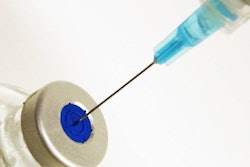
Trade organizations petition USDA for restrictions on organic soybean products to prevent ASF
The U.S. pork industry is calling on federal officials to implement new trade restrictions designed to prevent the spread of African swine fever (ASF) in light of concerns that that simply holding feed in storage may not be enough to combat the durable virus.
A coalition of trade organizations, led by the National Pork Producers Council (NPPC), wrote to the U.S. Department of Agriculture (USDA) on February 20 to request restrictions on imported organic soybean products. While the coalition was “confident in the safety of domestic soy products,” it wrote, the industry has become concerned about the potential for contaminated feed to enter the U.S. by way of imported organic soy products.
Laboratory studies have demonstrated that soybean meal must be held for 125 days, or up to 168 days, to allow for 99.99% of any ASF virus that may be present to deteriorate. These times are impractical, a spokesperson for the NPPC said.
The U.S. imports very little soy from ASF-affected regions, but it imports notable quantities of organic soybeans from these areas, the NPPC said.
“For that reason, we are asking you to utilize your authority under the Animal Health Protection Act to restrict the imports of organic soy products for animal feeds from all ASF-positive countries and to consider if action should be taken on all soy products,” the February letter to Agriculture Secretary Sonny Perdue reads.
The NPPC would also like to see the USDA address its concern that U.S. laboratories are not sufficiently equipped to handle a North American outbreak of ASF.
The council continues to communicate with the USDA and remains hopeful that the agency will respond positively to its request, as it has in the past when industry leaders called for an increase in the number of agricultural inspectors at U.S. borders.
“NPPC continues to focus on increased biosecurity, both on our farms and at land, air and sea ports, to ensure the U.S. swine herd remains healthy and we are providing safe, nutritious and affordable pork to consumers here at home and around the world,” an NPPC spokesperson said in an email.
















